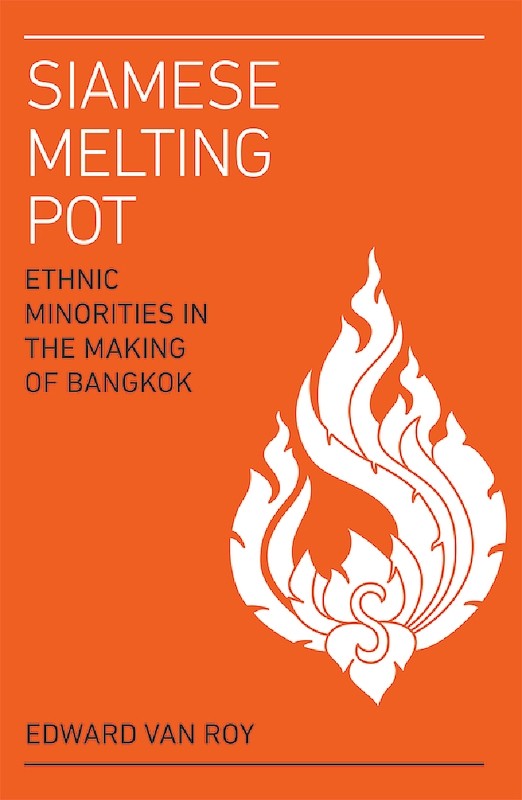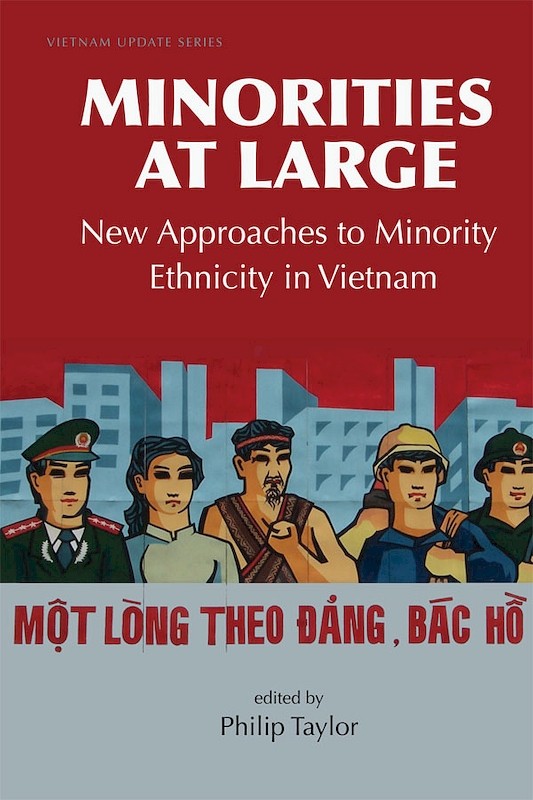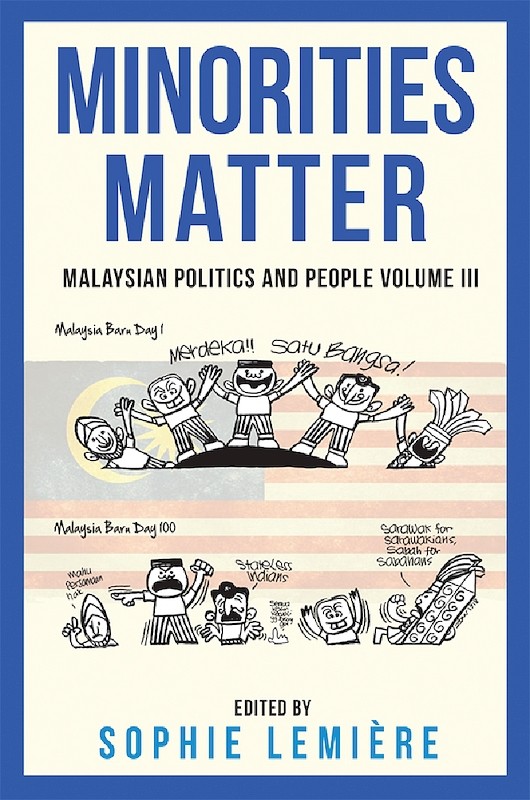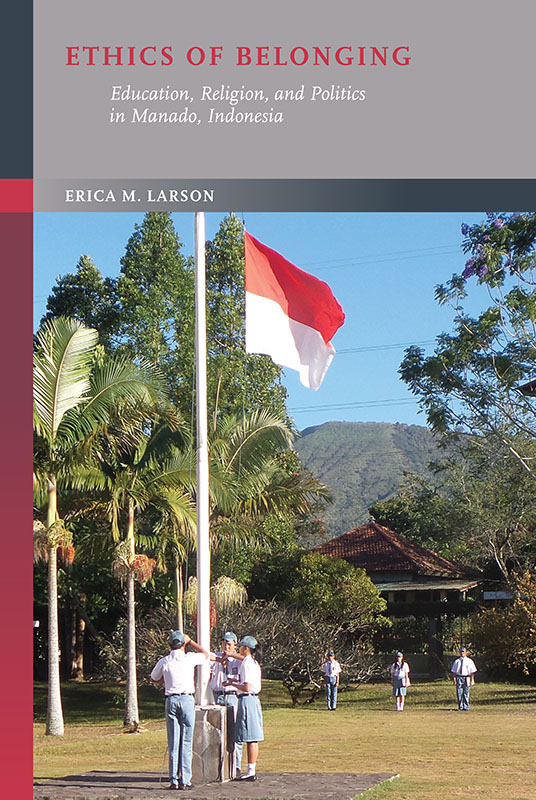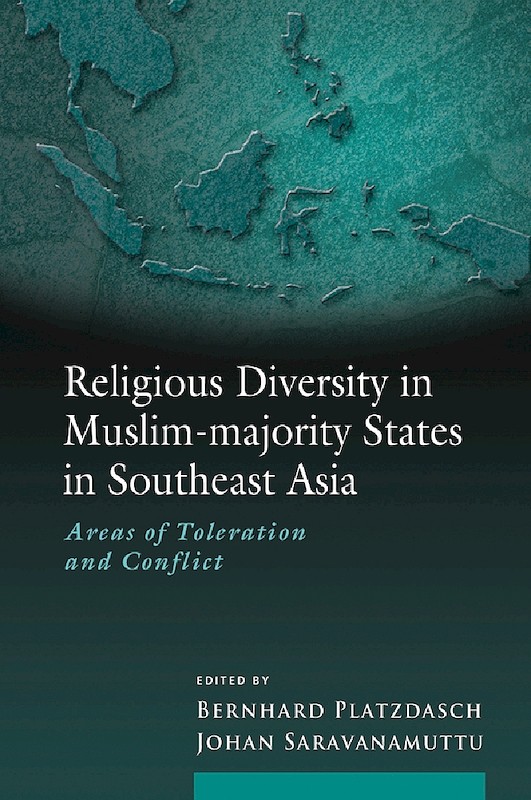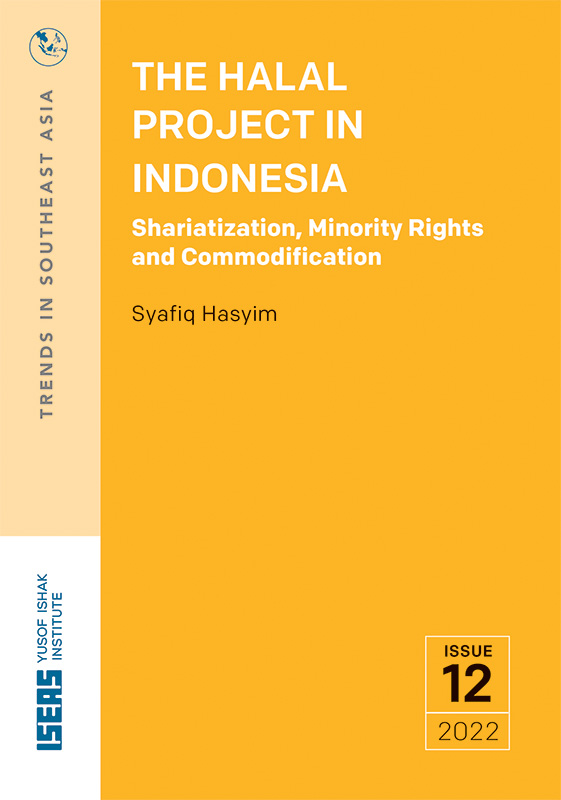Contentious Belonging: The Place of Minorities in Indonesia
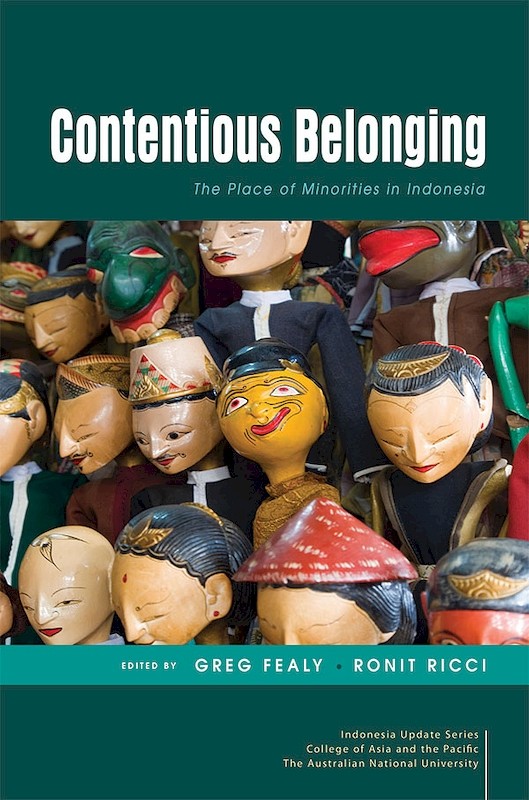
Reviews
Robert W. Hefner, Pacific Affairs Vol. 93 No. 3, Sept 2020.
"The book's thirteen topical chapters are divided into four parts: History and Law, Disability, Sexuality, and Religion and Ethnicity. the editors open the book with a scene-setting review of the historical and legal circumstances of Indonesia's minorities. The editors revisit recent events as well, including the 2016 -2017 campaign against the Chinese-Christian mayor of Jakarta, Islamist campaigns against LGBT activism, the sectarian targeting Ahmadiyah and Shi'a, and the growing prosecution of religious "deviants" under Indonesia's law on religious blasphemy. The authors argue, I think correctly, that lack of legal enforcement and "a growing culture of intolerant Muslim majoritarianism" (10) have worked to undercut major portions of Indonesia's new democracy.
In the book's conclusion, the analyst Sidney Jones provides an apt reflection on the book's findings. Observing that the category of minority in Indonesia is both malleable and politically charged, she touches on a theme broached by most of the contributors to this volume: that minority-majority relations today seem to be in the throes of a great transition marked by the rise of an intolerant Muslim majoritarianism.
In both its breadth and policy implications, this is one of the most important books in recent years on social minorities, majorities, and citizenship in Indonesia. It merits reading by all observers of contemporary Indonesia, as well as by researchers concerned with the promise and perils of democracy and majoritarianism today."
Chong Wu-Ling, Journal of Southeast Asian Studies, 2020.
"Contentious belonging: The place of minorities in Indonesia is an edited volume that comes at a critical time when many scholars and observers are trying to make sense of the rise of intolerance and oppression on religious, ethnic as well as sexual minorities in the country in recent years. It stems from the Australian National University's thirty-sixth Indonesia Update Conference held in 2018.
Fealy and Ricci ... emphasise that 'Indonesia's treatment of minorities is neither uniform [n]or monolithic' because there are some minorities that rarely or never experienced discrimination and persecution (p. 5). Therefore, this volume is a timely attempt to offer glimpses into the conditions of various minorities within Indonesia and how the power-holders as well as mainstream society have dealt with them in practice.
Overall, this volume provides important insights into the different conditions of various minorities in Indonesia. It is an important contribution to the studies of minorities in the country and would be of greatest use to those with an interest in this area of study."
Wildani Hefni, Asian Studies Review, April 2020.
"This rich and thorough study seeks to identify various segments of "divided" and "sub-divided" minorities in contemporary Indonesia. The editors of this volume, Greg Fealy and Roni Ricci, start by uncovering the darkness of the nationality problem for minorities, in which they may feel a sense of belonging, or not belonging, within Indonesian society. They argue that Indonesia in fact does not celebrate its diversity. They comprehensively address the realities of minorities in Indonesia: when Muslims are considered not to be Muslims, and when Indonesian communities are not considered Indonesian. By taking this point of departure, Fealy and Ricci reveal the rich political dissonance of minorities in Indonesia from the treatment of religious and ethnic minorities and of the lesbian, gay, bisexual and transgender communities, to prejudices against members of the Ahmadiyah and Shi'a communities.
Minorities grapple with the issue of identity as a result of disdainful attitudes of the majority towards them. This book offers a deeper understanding of the challenges faced by minority groups through rich case studies that provide multifaceted perspectives. This book is useful not only for those with an interest in Indonesian state and society but also for a broader public."
Wai Weng Hew, Southeast Asia Research, 2020.
About the publication
Contents
-
Contentious Belonging: The Place of Minorities in Indonesia
[Whole Publication, ISBN: 9789814843478], by Greg Fealy, Ronit Ricci, editors -
Preliminary pages
-
1. Diversity and Its Discontents: An Overview of Minority–Majority Relations in Indonesia, by Greg Fealy, Ronit Ricci, authors
- PART 1: HISTORY AND LAW
-
2. Minorities in Indonesian History: From Ambiguous Advantage to Cantonisation , by Robert Cribb , author
-
3. Minorities and Discrimination in Indonesia: The Legal Framework , by Tim Lindsey, author
-
4. The Constitutional Court and Minority Rights: Analysing the Recent Homosexual Sex and Indigenous Belief Cases , by Simon Butt, author
- PART 2: DISABILITY
-
5. Changing Laws, Changing Attitudes: The Place of People with Disability in Indonesia , by Thushara Dibley, Antoni Tsaputra, authors
-
6. Disability Inclusion in Indonesia: The Role of Islamic Schools and Universities in Inclusive Education Reform , by Dina Afrianty, author
- PART 3: SEXUALITY
-
7. Is the Recent Wave of Homophobia in Indonesia Unexpected? , by Saskia E. Wieringa, author
-
8. Localising Queer Identities: Queer Activisms and National Belonging in Indonesia , by Hendri Yulius Wijaya, author
- PART 4: RELIGION AND ETHNICITY
-
9. The Mobilisation of Intolerance and Its Trajectories: Indonesian Muslims’ Views of Religious Minorities and Ethnic Chinese, by Marcus Mietzner, Burhanuddin Muhtadi, authors
-
10. Disputes over Places of Worship in Indonesia: Evaluating the Role of the Interreligious Harmony Forum , by Ihsan Ali-Fauzi, author
-
11. Anti-Chinese Sentiment and the “Return” of the Pribumi Discourse , by Charlotte Setijadi, author
-
12. Minority and Advantage: The Story of Sindhis in Indonesia , by Maria Myutel, author
-
13. "Normalising" the Orang Rimba: Between Mainstreaming, Marginalising and Respecting Indigenous Culture, by Butet Manurung, author
- PART 5: REFLECTIONS
-
14. Manipulating Minorities and Majorities: Reflections on “Contentious Belonging” , by Sidney Jones, author
-
Index
-
Indonesia Update Series
Indonesia Update Series
-
2018Indonesia in the New World: Globalisation, Nationalism and Sovereignty
-
2017Digital Indonesia: Connectivity and Divergence
-
2016Land and Development in Indonesia: Searching for the People's Sovereignty
-
2015The Yudhoyono Presidency: Indonesia's Decade of Stability and Stagnation
-
2014Regional Dynamics in a Decentralized IndonesiaHal Hill, editor
-
2013Education in Indonesia
-
2012Indonesia Rising: The Repositioning of Asia's Third GiantAnthony Reid, editor
-
2011Employment, Living Standards and Poverty in Contemporary Indonesia
-
2010Problems of Democratisation in Indonesia: Elections, Institutions and Society
-
2009Indonesia beyond the Water's Edge: Managing an Archipelagic State
-
2008Expressing Islam: Religious Life and Politics in Indonesia
-
2000Governing Singapore: A History of National Development and DemocracyRaj Vasil, author
-
2006Different Societies, Shared Futures: Australia, Indonesia and the RegionJohn Monfries, editor
-
2005The Politics and Economics of Indonesia's Natural ResourcesBudy Resosudarmo, editor
-
2004Business in Indonesia: New Challenges, Old Problems
-
2003Local Power and Politics in Indonesia: Decentralisation & Democratisation
-
2002Women in Indonesia: Gender, Equity and Development
-
2001Indonesia Today: Challenges of History
-
2000Indonesia in Transition: Social Aspects of Reformasi and Crisis
-
1999Post-Soeharto Indonesia: Renewal or Chaos?Geoff Forrester, editor
-
1997Indonesia Assessment: Population and Human Resources
-
1994Indonesia Assessment 1994: Finance as a Key Sector in Indonesia's DevelopmentRoss H McLeod, editor

